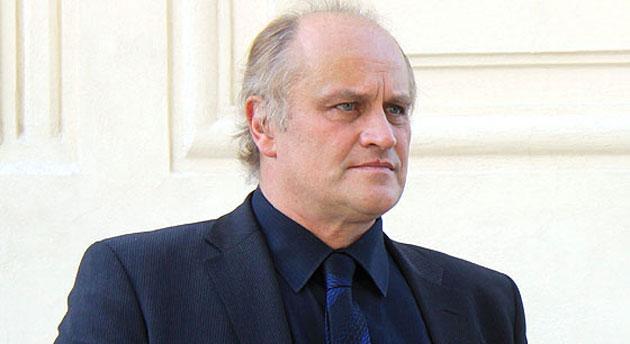Former Czech Human Rights Minister: Romani issues deserve a minister, not just a commissioner

The Czech News Agency reports that former Czech Human Rights Minister Michael Kocáb says Romani issues should be addressed by a cabinet member and not just a government commissioner. A cabinet minister would have a stronger position and more say in promoting measures to improve the situation.
Kocáb said that without such high-level attention, the state of affairs will not change for the better and could continue to deteriorate. He was alluding to the recent anti-Romani marches in various locations around the Czech Republic.
"In that area [Romani issues] there should be a commanding, strong commissioner, and the best would be a minister [for human rights]. Another minister could also be given the issue as part of his or her portfolio, but whoever it is should be a constitutional officer," Kocáb is convinced.
In the former minister’s view, such a cabinet member is able to contribute toward promoting change at every weekly cabinet meeting. He assess the current situation as critical.
Other members of the Czech population who do not necessarily identify as right-wing extremists have been joining anti-Romani marches organized by the ultra-right. These marches often become mobs that attempt to attack buildings where Romani people live.
The police have prevented these attacks to date. "What could be more critical than the possibility of blood being drawn and gigantic police cordons having to intervene? We don’t have anything else to offer in this area," Kocáb said.
An estimated 250 000 Romani people live in the Czech Republic. Roughly one-third of them live in ghettos.
In such neighborhoods most of the adults are unemployed, families are dependent on welfare, and loan-sharking is a booming business. Children from such areas end up enrolled in "special schools", which practically closes off their path to a better education and opportunities to assert themselves.
According to an analysis from several years ago, there are 300 such impoverished buildings and neighborhoods in the Czech Republic, and experts say roughly 100 more have sprung up since. "The weaker the role of the commissioner, since we no longer have a minister, the less hope there is that the state apparatus will discover which efficient, positive steps to take. If the commissioner is weak, we can’t expect any improvement," Kocáb said.
The former minister has criticized the current Czech Government Human Rights Commissioner, Monika Šimůnková. In his view she has been "almost invisible" and is it basically unclear what she has done to improve the situation.
Kocáb was Human Rights Minister from January 2009 – March 2010 in the governments led by Mirek Topolánek (Civic Democrats – ODS) and Jan Fischer. From April – September 2010 he was the Czech Government Human Rights Commissioner before the Nečas government removed him from the post.
Šimůnková was Kocáb’s immediate successor. On 15 October the administrative head of the Office of the Government dismissed her from leading the Human Rights Section, but she remains the Human Rights Commissioner.
Kocáb says it is essential that the Human Rights Commissioner visit problematic areas and be seen in them. "People recognize it when someone is looking out for them. Hope and mutual trust can help. Romani people must have the hope that their situations will improve, they must have trust in the state, and they must believe that society wants their situations to improve. If the opposite is the case, I don’t see any chance for improvement," the former minister said.